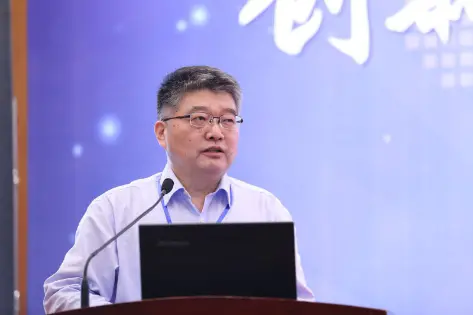The recent questioning of ex-president Lee Myung-bak means all former South Korean presidents have been convicted, charged or embroiled in criminal inquiries.
From an ethical perspective, we can ask two key questions as to what is behind the corruption scandals of South Korea’s former presidents.
The first question is whether the presidents had the moral backbone to follow the country's constitution when they formed their governments.
The second question is, if they did have the moral backbone, what happened to it whilst in office?
Let’s first look at the group who did not follow the constitution – either by the way they took power, or in the way they changed the constitution once in power.
The people in this group were either military leaders or presidents who were elected but revised the term limitations on purpose.
People watch a live televised verdict trial for impeached former president Park Geun-hye at the lobby of the Seoul Central District Court, April 6, 2018.
If we want to look at the ethical standing of presidents, we can remove this group from our discussion, as we can easily assess them as dictators whose corruption was inevitable.
But if the government was legitimate, we can then ask if the president had the morals to suitably perform their duties and exercise their power in compliance with the constitution.
The presidents who tended to uphold negative legacies following dictators failed to demonstrate "good" morals even if they were elected in a "legitimate" way. They all seem to have pursued their own interests including the interests of family members, or close friends.
They may have thought they personally deserved to have “their share” for managing the country even if they were really poor at doing so. But the word "republic" indicates public leaders have to have the public’s interests at heart rather than just selfish motives.
Then what about the rest of the presidents who seemed to be elected in a "legitimate" way and acted in relatively good ways? How did their moral fail them? Is every president morally bankrupt or is there a deeper societal problem?
We can approach the issue by examining the country’s wider political climate, economic development, social norms and culture.
As a society, I believe South Koreans are generally fair and just. Even under authoritarian regimes, South Koreans have shown the power of democracy by taking direct action throughout their history and have constantly strived to achieve economic affluence and have indeed seen remarkable progress in just the last few decades. But it’s also true that they didn’t pay much attention to the political process putting their own economic concerns and prosperity first and the means to achieve that second.
With these values running through society, where the “ends justify the means,” could this explain why the presidents fall afoul of corruption scandals?
However, change might be in the air.
Considering the economic, social and political climate of South Korea, I think that Moon Jae-in's government’s reformation on past corruption practices and its proposal of constitutional reform are good initiatives at this point in time, and they should have a ripple effect across the country’s civil society and culture too.
Former South Korean president Lee Myung-bak leaves his residence as he is transferred to a detention house in Seoul, South Korea, March 23, 2018.
As to the draft of constitutional reform, it is intended to reinforce basic human rights and create a more democratic system by which to run local governments. Especially, if the President can be re-elected after their first 4-year term, but only once, so that people can make sure the President is accountable for his or her actions. The people should also be able to recall members of the National Assembly during their term in office ensuring their accountability too. As such, South Koreans have direct channels to trust their sovereignty through the election of the president and members of the National Assembly and now can have more elaborate and effective measures to hold politicians to account through re-elections and recalls.
We have to wait and see what politics will present, but no doubt the draft is a promising new beginning for a happier future.
Jaesung Hong is a lawyer and member of Anguk Law Office in Seoul, South Korea. The article reflects the author's opinion, and not necessarily the views of APD.
(CGTN)
 简体中文
简体中文



